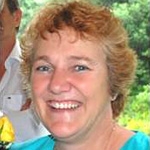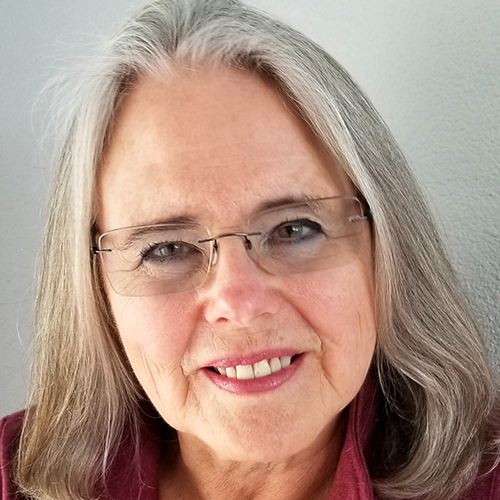 Infant Sleep 2015 Lecture Pack
Infant Sleep 2015 Lecture Pack
 Speakers & Presentations
Speakers & Presentations


The Development and Implementation of a Hospital-Wide Human Milk Storage and Handling Program
Duration: 60 min
Credits: 1 CERP, 1 Nursing CEU, 1 CME, 0.1 Midwifery CEU, 1 Dietetic CEU
-
Abstract
Even though we handle and store approximately 75,000 human milk containers per year we found significant inconsistencies in practice across our perinatal, pediatric, and adult units. In this presentation we will share practical, day to day strategies that we used to eliminate these inconsistencies and increase quality and safety related to handling and storing of human milk. We will discuss the development and implementation of our hospital-wide human milk room as well as the human milk technicians and the problems we overcame to make the program successful.
-
Biography
I am a Board Certified Neonatal Nurse Practitioner and a Certified Lactation Counselor since 2010. I work in a 52 bed level 3 Neonatal Intensive Care Unit. As a bedside RN for 8 years I assisted in the advancement of our lactation program by hosting Lactation Counselor courses, developed the human mil technician role, and assisted in developing the hospital standards for donor milk use in preterm infants. I am currently the Clinical Leader in which my responsibilities include the development of our hospital-wide human milk for our 900 bed hospital, educate and train human milk technicians, and ensure all human milk in our institution is handled and stored according to the highest National standards.


Improving NICU outcomes by Including Parents in Developmental Care
Duration: 60 min
Credits: 1 CERP, 1 Nursing CEU, 1 CME, 0.1 Midwifery CEU, 1 Dietetic CEU
-
Abstract
New neuroscience evidence shows how vital it is to put the preterm baby onto mother’s chest. This talk empowers the NICU staff to empower the parents with information and practical skills to best support their sensitive preterm baby’s development.
-
Biography
Jill Bergman qualified from University of Cape Town, South Africa in 1983 with a degree and post graduate teachers diploma. She has taught in Zimbabwe and South Africa and lectured at a teachers training college.
She has supported her husband Dr Nils Bergman in Kangaroo Mother Care since he started in 1988, and in a full-time capacity since 2000. She has made 4 films and written a book- Hold Your Prem- for parents of premature babies, all making the neuroscience that Nils teaches applicable in practice and translating care into non-technical language.. She has a passion for supporting mothers in labour as a doula and as a kangaroula speaking for the needs of newborns, empowering mums and babies with early bonding and breastfeeding. She trains nursing staff and hospitals in the practicalities of skin to skin contact, and developmental care. She and Nils have three super youngsters,two just finished university.


NICU Nutrition: Current Status, Opportunities & Challenges
Duration: 60 min
Credits: 1 CERP, 1 Nursing CEU, 1 CME, 0.1 Midwifery CEU, 1 Dietetic CEU
-
Abstract
The benefits of human milk for term infants are well recognized. Human milk is species-specific and has been adapted through evolution to meet the needs of the human infant, supporting growth, development, and survival. It has only been in the very recent past that significantly preterm infants have survived and that attention has been paid to the crucial role of nutrition in the long-term outcomes for these infants. Human milk is a complex fluid that simultaneously provides nutrients and bioactive components that facilitate the adaptive, functional changes required for the optimal transition from intrauterine to extrauterine life. Preterm infants suffer not only from gastrointestinal immaturity, but also from functional immaturity of all organs and physiologic systems, as well as specific illnesses and complications, which further confound their transition from fetus to newborn. We will discuss the goals and methods of providing appropriate nutrition for NICU infants to promote optimal short and long term outcomes.
-
Biography
After 37 years as an attending neonatologist and 18 years as medical director of lactation services, Nancy retired from clinical practice 2019. She graduated from medical school and did her training in pediatrics at the University of North Carolina, Chapel Hill. She did her fellowships in Neonatal-Perinatal Medicine and ECMO at UCSD Medical Center in San Diego. She has been a board-certified lactation consultant since 1988. Nancy co-founded the San Diego County Breastfeeding Coalition in 1994. She was the Breastfeeding Coordinator for AAP CA Chapter 3 from 1992 until 2020, Board Member of HMBANA 2015-2019 and established the first Donor Milk Depot in San Diego over 25 years ago. Nancy is a past president of the Academy of Breastfeeding Medicine. She wrote, and continues to update, the very first ABM Protocol on Hypoglycemia and Breastfeeding. In 2014 Nancy was awarded the Golden Wave Award by the California Breastfeeding Coalition for her efforts to reduce obstacles to breastfeeding in California, and the WIC Breastfeeding Champion Award in 2017. She received AAP Special Achievement Awards in 1997 and 2021 for her breastfeeding education and promotion efforts.
On a personal note, she is the mother of a (formerly breastfed) archaeology student and lives in San Diego, CA, with her significant other, their dog, Darwin, and a beautiful view of the ocean.


Understanding resilience: why a preterm needs its mother.
Duration: 60 min
Credits: 1 CERP, 1 Nursing CEU, 1 CME, 0.1 Midwifery CEU, 1 Dietetic CEU
-
Abstract
Our latest understanding of developmental neuroscience is based understanding epigenes. These are influenced by the earliest environment encountered, as the switches make “predictive adaptive responses”. These influence brain development as well as subsequent psychological and physiological health over the lifespan. Early gene expression makes the brain and its circuitry, and neuronal circuits are the essence of what we subsequently become: “we are our brains”. Cortisol is the most well known activator of the epigene, but it only does so when it can act unopposed for long periods of time. The “opposition” to cortisol comes from the combined effect of dopamine (the reward hormone) and oxytocin (the social hormone). Resilience is therefore about healthy dopamine and oxytocin circuits. It is mother’s presence that is required for the establishment of these. Preterm infants need resilience, and must have their mothers with them always.
-
Biography
Dr Nils Bergman calls himself a Public Health Physician, and currently promotes and researches skin-to-skin contact on a fulltime basis.
He is an Honorary Senior Lecturer at the University of Cape Town, South Africa, and a research affiliate of the South African Medical Research Council.
Dr. Bergman was born in Sweden and raised in Zimbabwe, where he also later worked as a mission doctor. He received his medical degree (MB ChB) at the University of Cape Town, and later a Masters in Public Health at the University of the Western Cape. During his years in Zimbabwe he completed a doctoral dissertation (MD, equivalent to PhD) on scorpion stings. He has worked in rural South Africa, Zimbabwe and Sweden, and his last posting was Senior Medical Superintendent of Mowbray Maternity Hospital in Cape Town, overseeing 18000 births per year.
He enjoys sharing the wildlife of Africa with his wife and three youngsters.

